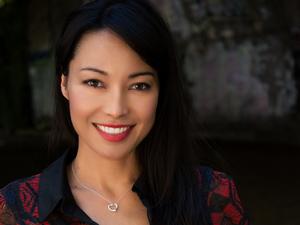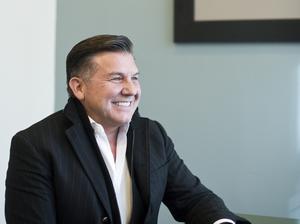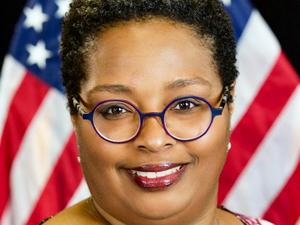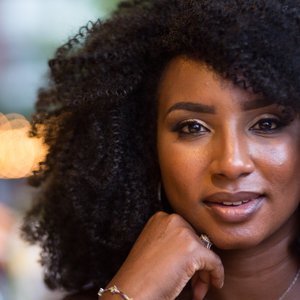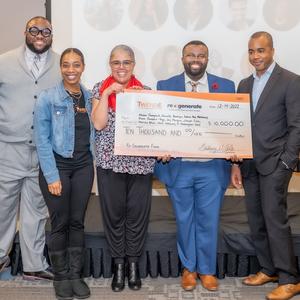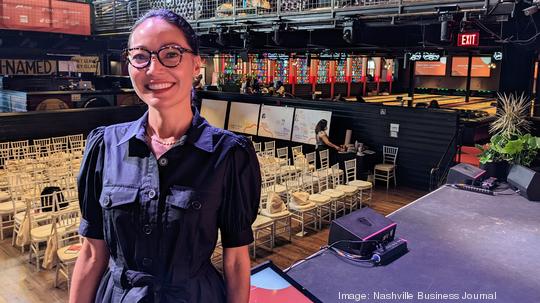
Adriana Gascoigne has lived all over: Silicon Valley to New York, Miami to Denver, London, Singapore. Now she lives in Nashville, and she brought her 15-year-old global nonprofit with her.
Gascoigne is CEO of Girls in Tech Inc., which aims to boost more women into technology careers. People from Armenia, Toronto, Ecuador and the Dominican Republic came to her conference in Nashville this month, which will host future visits from some of the organization's 55 chapters worldwide.
The move makes Gascoigne a new ingredient in Nashville's smaller but rapidly growing tech sector. We spoke with her about what sparked her to start Girls in Tech and her misconceptions about what she thought Nashville would be like.
This interview has been edited for clarity and length.
NBJ: What made you start this organization?
Gascoigne: I was working at an amazing startup, with 35 employees. I was the only woman in the whole company, and the only person of color. It was a very myopic mindset of what our users needed, what the product needed. It was really hard to recruit people to that company, to be honest. I'd be the only one going to the career fairs. But they'd enter into the office, and it's beer pong tables and posters that were focused on sort of a programmer culture. That's not very inviting to other diverse groups of people. It really did impact the culture, the way people interacted and communicated.
Why Nashville? I'm a strong believer that tech is everywhere. I don't feel like the tech mecca is Silicon Valley anymore. We have two very close friends here and they exposed us to this community. A lot of traditional industries here, like construction, or automotive, and music — they're all doing a lot of innovation. Personally, we found that the lifestyle here was more conducive to the way my husband and I wanted to live. You say hi to your neighbors; they say 'good morning!' I sit in my Adirondack chair on my porch with coffee every morning and watch the cardinals. I love the more balanced, relaxed, authentic life Nashville is bringing us. It aligns very much with our culture, which is authenticity. We're empowering women to come to the table as they are. Tech is not a 25- to 35-year-old white dude in a hoodie, right? It is everybody.
What's surprised you the most? My idea of Nashville was very different than what it is in reality. I thought it was something like Texas, visually. I don't know why. We've been to Center Hill Lake, we've been to Arrington. I'm like, this is mind-blowing.
Being from the West Coast, we think of places like this as being more conservative. And it is. But I also think people don't talk about politics, not the people I've interacted with. I don't think politics is at the forefront of who we are, what we do and why we do it. … I was very surprised how entrepreneurial the people are here. It's so easy to launch a business. And there's so much work here, in every industry. I'm getting the conch shell out: "Everybody come here!" Don't change the culture, but come here — there's a lot of work.
How do you articulate the business case for having more women in technology? It really boils down to innovation. Coming from a background of product marketing, I always felt like the more diverse the teams are, the faster you innovate, the better problem-solvers you are. That's not just racial or cultural diversity. It has to do with where you've lived, what languages you know, what experiences you've had in your lifetime, what jobs you've held. It also helps with the bottom line. If you're increasing opportunities within your products and services … you're bringing more revenue into the company.
What's the most common 'yeah, but' response that you get after that pitch? There's always the conversation of, "Shouldn't it be based on merit?" versus just focusing on diversity. I actually agree with that. It should be based on merit. Organizations like Girls In Tech, and HR executives and [diversity, equity and inclusion] executives should be doing the hard work to find where those diverse groups of people exist. It should be focused on who is best for the job, but I think we need to work harder. You can't just check a box, hire a DEI executive and think the rest will just fall into place.
You're saying there are more people of merit out there than in the one well many employers seem to keep going to. Yeah. I go back and forth with 'equality' and 'equity.' Equality, to me, is exactly what we're doing. We're providing educational resources and career development tools for everybody. Everyone has a fair shot at accessing what we're offering.
